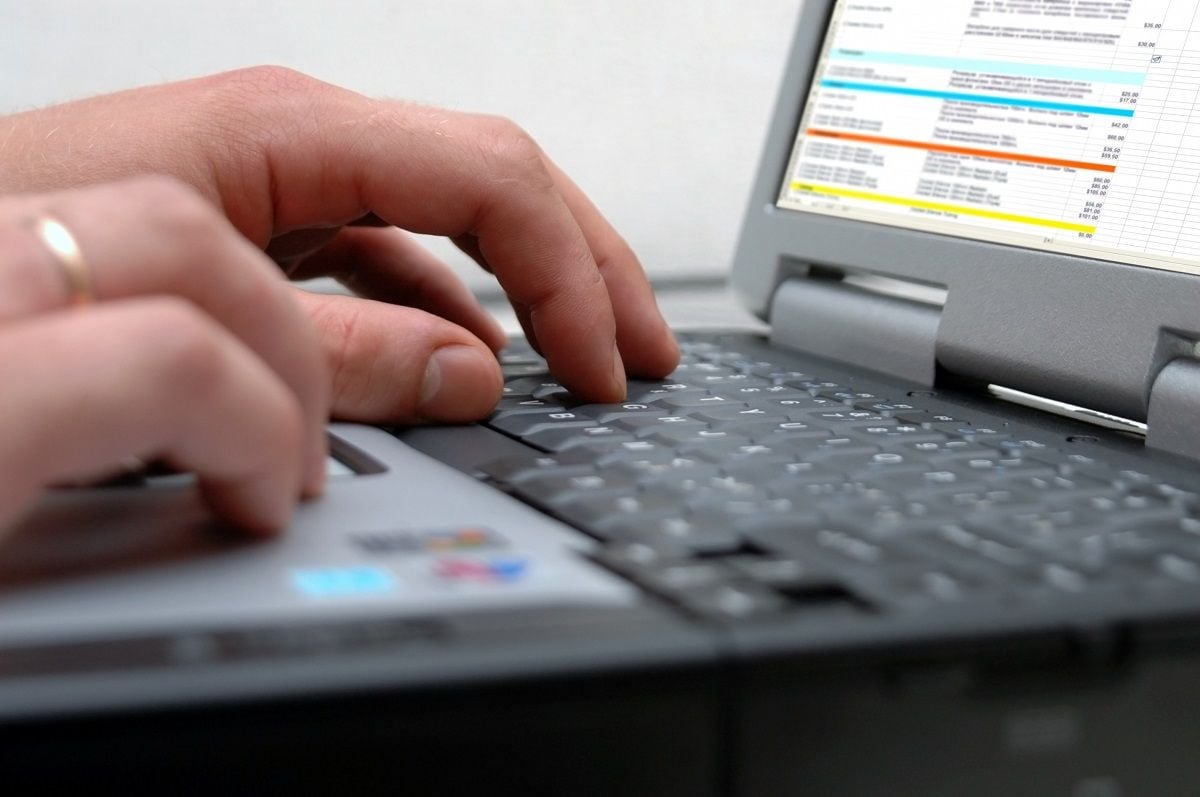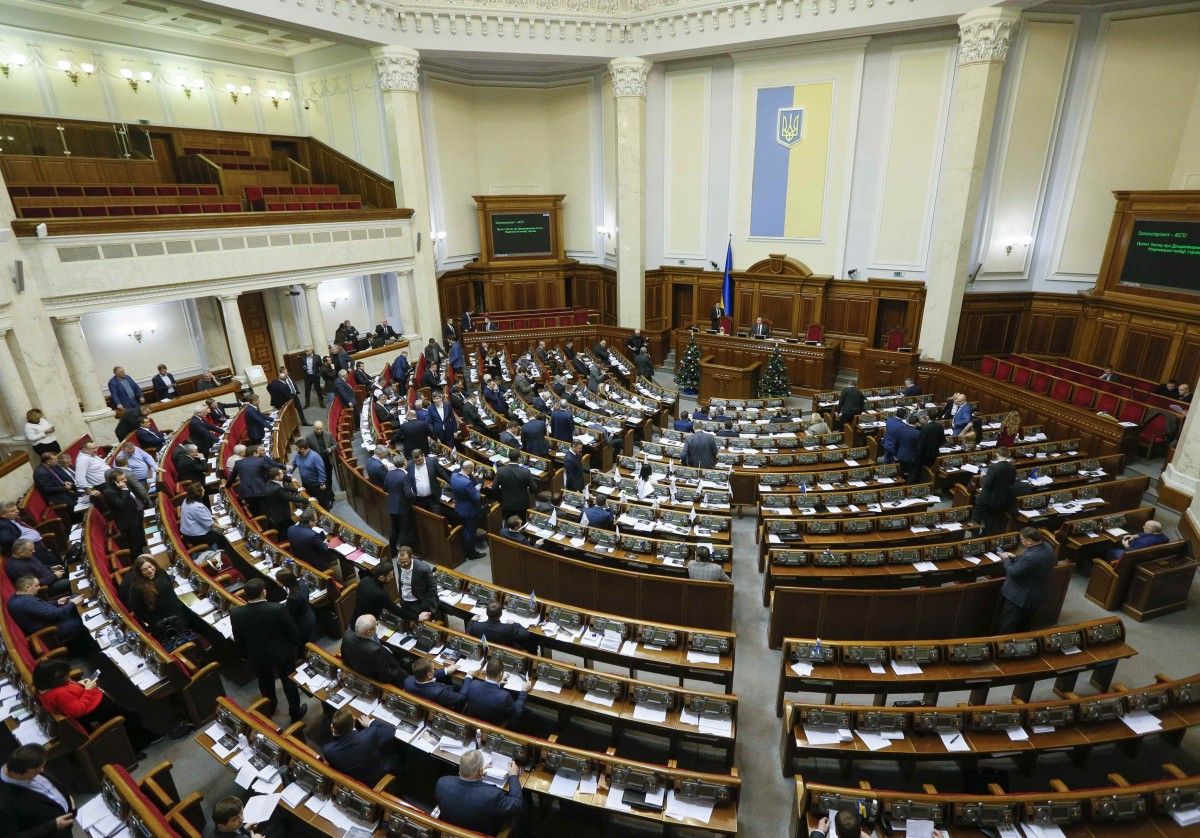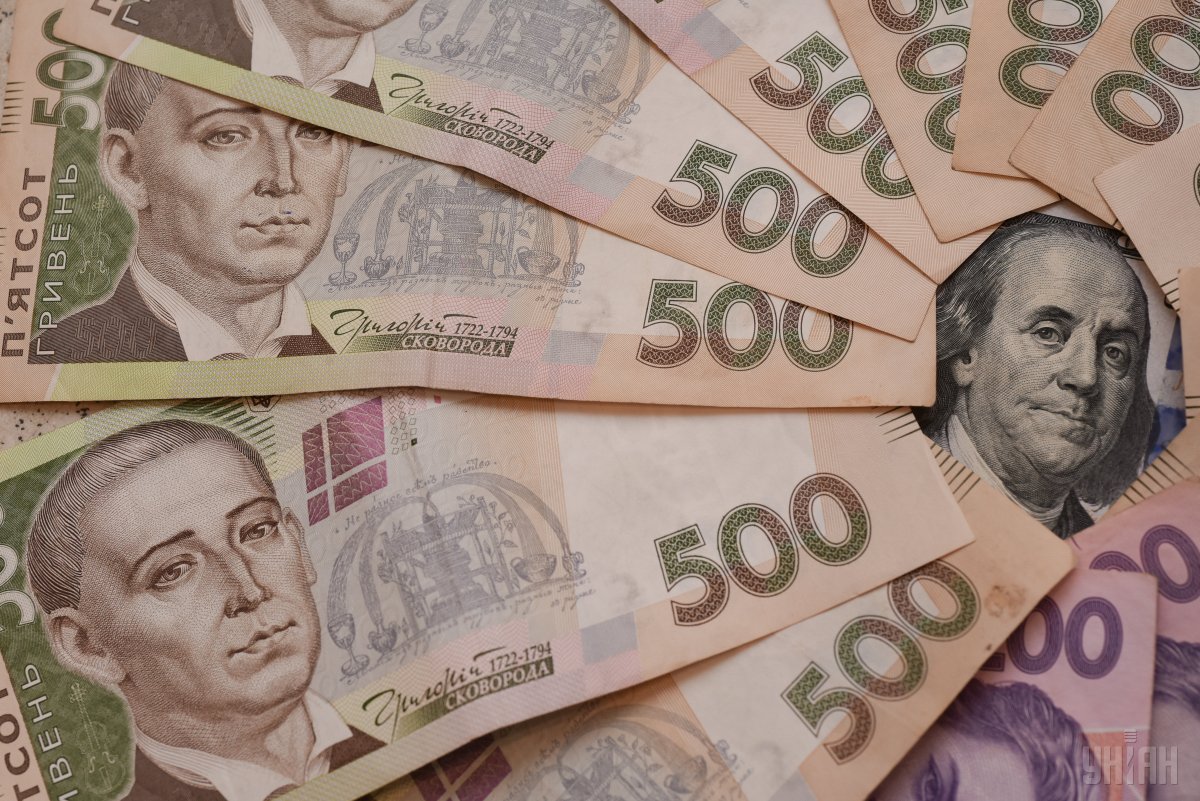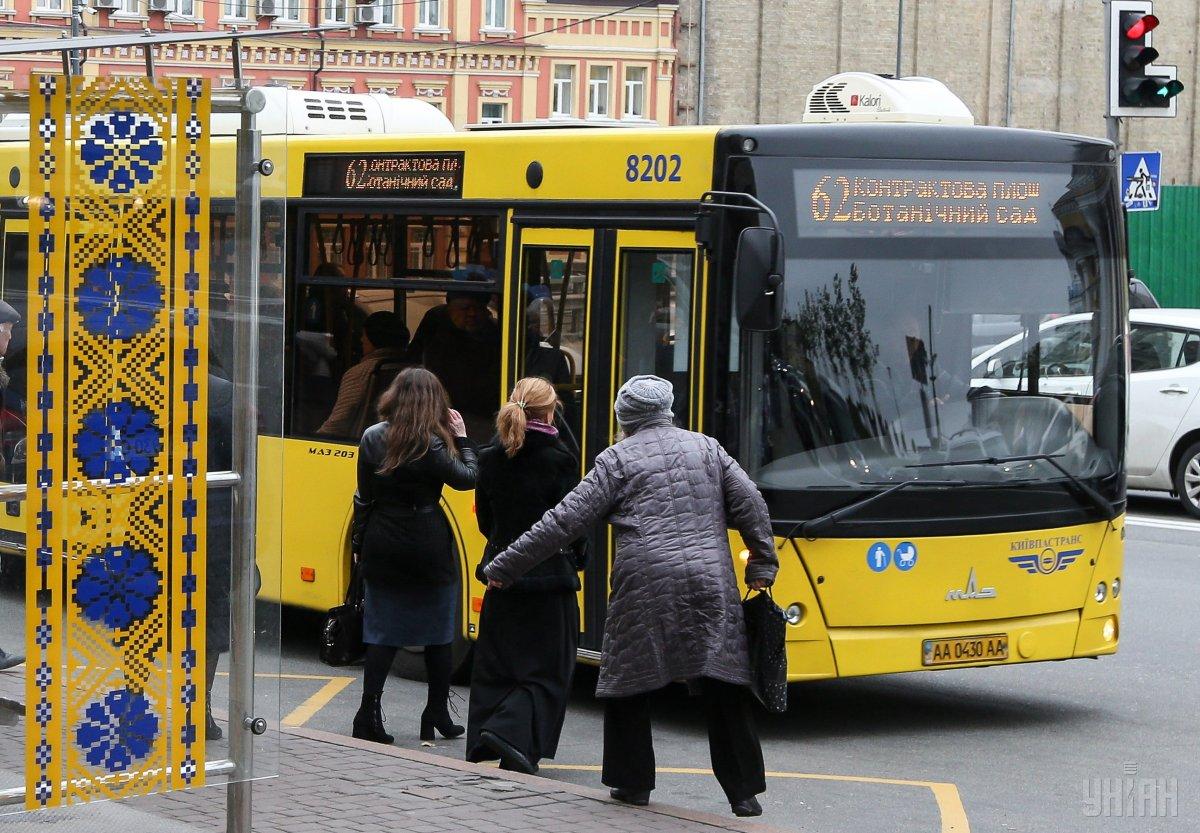
Week's balance: EU decides to lend EUR 1 bln, Rada outlaws palm oil, Kyiv ups public transport fares
The EU plans to lend EUR 1 billion to Ukraine, demanding more efforts to fight corruption, on the eve of summer vacations the Verkhovna Rada intends to outlaw the use of palm oil in food production, and the Kyiv authorities have decided to sharply raise the fare in public transport to prevent collapse – these are the major economic developments of the past week.
Optimistic news came from the European Union last week. The European Parliament's Committee on International Trade backed the proposal of the European Commission to provide Ukraine with macro-financial assistance worth EUR 1 billion. After this vote, the proposal will be submitted to the European Parliament for approval at the plenary session in June. With a positive decision, the first loan in the amount of EUR 500 million will be given to Ukraine already in autumn. The European Commission is confident this money will help our country to cover part of additional external financial needs in 2018-2019, support the balance of payments, and create incentives for stepping up Ukraine's reform efforts.
At the same time, Europeans are concerned about the pace of reforms in Ukraine. Therefore, it is specified that the provision of macro-financial assistance will depend on progress in fighting corruption, including the creation of the High Anti-Corruption Court in accordance with the recommendations of the Venice Commission. It is worth noting the concerns of European partners have grounds. The last time the EU agreed on a program of assistance to Ukraine in April 2015. Then it was planned to provide our country with EUR 1.8 billion. But the program was completed without the allocation of the last tranche worth EUR 600 million, since Kyiv did not fulfill its obligations.
Another creditor of Ukraine, the International Monetary Fund, once again announced its conditions for further cooperation. Gerry Rice, the Director of the Communications Department at the International Monetary Fund, said at a briefing in Washington that Ukraine must pass an anti-corruption court law with amendments that will ensure its full compliance with the recommendations of the Venice Commission in order to obtain a loan.
"We are still looking to complete the fourth review of the IMF's supported program for Ukraine, and as we've signaled before, we think more progress needs to be made on a number of fronts before we can conclude that fourth review; and issues include the energy sector – fiscal policy. An approval of the appropriate law setting up a strong and independent anti-corruption court; and on the latter, it's crucial. We feel that the necessary amendments are adopted to ensure that the final version of that law is fully consistent with program commitments and the recommendations of the Venice Commission of the Council of Europe," he said.
The Fund also noted the importance of the issue of gas prices in Ukraine. According to Rice, it should be regulated by the market. "On the gas question, gas prices for households in Ukraine have not been adjusted for two years. Despite international prices having gone up considerably, so this results in implicit subsidies, which are regressive, particularly in the sense that they benefit disproportionally the largest users. So, we believe that it's important to let the gas prices be determined by the market in line with the reforms that were implemented in 2016," he said, adding that it's very important that the low income and vulnerable households are fully protected from an increase in gas prices by the current household support system.
But the Cabinet is in no hurry to raise gas prices for the population. Speaking at the Verkhovna Rada on Friday, the prime minister once again said that the government was thinking about how to fulfill the IMF's demand to bring gas prices for households to the market level, while taking into account the population's solvency.
Groysman also realizes that the increase in gas prices will clearly not earn political dividends for him, especially on the eve of the parliamentary elections.
"I know there are a lot of people who want to put this on my head to say: Groysman is to blame for this, but Groysman is not to blame for this, and neither are Ukrainians, it is the current situation, from which we must find the right way out," the prime minister said.
Hard-working lawmakers

Members of the Verkhovna Rada have never had a reputation for high standards of discipline of being present at work. This happened on Tuesday. At the beginning of the parliament's morning session, a little over 100 MPs were present in the session hall, although the registration board showed 332 people. At the same time, on the eve of the elections to be held in 2019, the problem of visiting the parliament is aggravated by the desire of some MPs to promote themselves, which influences decision-making. But despite this, the lawmakers were able to demonstrate the result during the past week. Thus, the Verkhovna Rada passed a law banning recovery of funds of heat and water supply companies received from international financial organizations for the implementation of investment projects. According to the authors of the document, this decision will allow public utility companies to use these funds purposefully, whereas now they are written off from accounts as payment of arrears. The law is designed to attract international funds for reforming and developing the housing and utilities services in general.
The members of parliament also passed an important law for authors and rights holders, which is designed to improve the process of managing property rights and lead to an increase in fees for authors. The document defines one organization for the collective management of rights in each of the spheres of collective management. These organizations are obliged to constantly report on their activities, to inform the author about the use of his or her works, about their remuneration, etc., i.e. from now on the authors or rights holders will clearly know which organization is responsible for a particular area of activity.
The Verkhovna Rada also tackled the metal market. The MPs voted to raise the duty on scrap metal exports to EUR 42 per tonne from EUR 30 per tonne, as well as extended the period when the duty will be in effect until September 2019. The purpose of this decision is to reduce the deficit of ferrous scrap metal on the domestic market for the primary needs of the defense industry and to ensure conditions for the restoration of infrastructure facilities. By the way, this decision is not new. In July 2016, the Verkhovna Rada increased the export duty on waste and ferrous scrap metal to EUR 30 per tonne.
In addition, the Verkhovna Rada approved a number of bills, having voted for them in the first reading. Thus, it brought these bills closer to the opportunity to become laws. The most notorious was the bill banning the use of palm oil in food production. The deputies explained that it is necessary to outlaw palm oil, since its fatty acids increase the level of cholesterol in the blood and provoke atherosclerosis, vascular thrombosis, heart diseases, obesity. "But despite this, it is widely used in Ukraine in the production of food, in particular, dairy products and confectionery as a substitute for expensive oil, which in turn leads to a cheaper production," the note to the bill says. In response, experts say 90% of dairy products in Ukraine contain palm oil. And in the case of disappearance of products containing palm oil, food products can rise in price by at least 20-30%. Moreover, according to co-owner of the Molochniy Alians [Milk Alliance] group of companies, Oleksandr Derkach, if the use of palm oil is outlawed, Ukrainians will reduce the consumption of dairy products. "All the talk about banning palm oil is just populism. The consumption of dairy products will not increase after this, I am sure about that. On the contrary, people will buy them even less and, accordingly, receive less protein and other nutrients, which are not affected by trans fats and do not replace them. A normal manufacturer will never produce a counterfeit, and not a normal one will smuggle trans fats and will produce goods," Derkach said.
Another important decision in the food industry was the adoption in the first reading of the bill, which proposed to abolish the minimum prices for the sale of sugar beet and established quotas for its production. Restrictions were introduced by the Verkhovna Rada in 1999. The goal of setting minimum prices for sugar and sugar beet was the desire to prevent the fall in the cost of sugar in the domestic market below the feasible level.
MPs also adopted in the first reading two draft laws on the banking sector. Thus, the Verkhovna Rada backed the presidential draft law on currency, which cancels the decree on currency regulations and ensures free forex operations. Presenting the bill, presidential envoy in parliament Iryna Lutsenko said the current legislation is outdated and is not in line with current practice of currency regulation. "The draft law proposes the cancellation of the outdated decree on the system of currency regulation and the introduction of the principle that 'Everything which is not forbidden is allowed.' The adoption of the law will allow the elimination of inefficient restrictions. In particular, investing abroad within limits will no longer require individual licenses. Currency control for transactions exceeding UAH 150,000 will be replaced with currency supervision, and transactions below UAH 150,000 will not be subject to supervision. It will not be necessary to register loans from nonresidents," she explained.
In addition, the Verkhovna Rada approved the bill on simplifying the process of debt collection. Governor of the National Bank of Ukraine Yakiv Smolii, who was present at the parliament's meeting, said the adoption of the document would solve problems that create barriers to lending. "A full-fledged resumption of lending is blocked by imperfect legislation. The adoption of the bill will solve the problems that create barriers to lending. Given the security of creditors' rights, banks will be able to put forward more loyal requirements to potential borrowers," he said.
GDP is growing

The State Statistics Service of Ukraine has estimated GDP growth of Ukraine in the first quarter. According to the statistics, Ukraine saw a 3.1% increase in real GDP in the first quarter of 2018. This figure was commented by Prime Minister Volodymyr Groysman during the government meeting. "Yesterday, the State Statistics Service reported that, based on the results of the first quarter, we have a 3.1% growth in the national economy. This is quite an optimistic indicator, but I emphasize that it is not enough," the prime minister said. At the same time, he said the economic growth requires investment inflow, which is realistic to do if investors' confidence in the country increases.
The government of Ukraine predicts economic growth by 3% by the end of the year, while the International Monetary Fund and the World Bank say it will be about 3.5%.
The prime minister did not shy away from one of his favorite topics – increase in wages. "There is a dynamic, and we believe the average salary should be at least UAH 10,000 this year," Groysman said, adding that the average salary is now UAH 8,000.
Along with the increase in wages, the government faces the task of making it pay out. According to the State Labor Service, arrears in payment of wages in Ukraine increased by 32.4% year-on-year and amounted to UAH 2.37 billion. But Justice Minister Pavlo Petrenko assures that the work in this direction is under way. According to him, the Ministry of Justice has recovered almost UAH 170 million in wage arrears in favor of 13,000 employees since the beginning of the year. He said the debts that were fixed by the court would be repaid by the end of the year.
However, it seems Groysman thought that the Justice Ministry had not enough forces, so he instructed the heads of the regional administrations to get involved in the work of the operational headquarters of the Ministry of Justice in collecting wage debts. "The personal responsibility of the heads of the regional administrations will be strengthened so that they clearly work to fulfill their tasks," Groysman commented on the decision.
Kyiv raises fare in public transport

Kyiv Mayor Vitaliy Klitschko has Napoleon's plans. He decided to double the fare in public transport. A turning point for Kyiv residents and visitors to the capital will come in the middle of summer. There are several reasons why the city authorities have decided on such an unpopular action. This is the unsatisfactory financial condition of transport enterprises, and a multiple rise in price of electricity, fuel and lubricants. And the need to raise wages to drivers. By the way, all these arguments used by the authorities are traditional, repeated from year to year. Although now Deputy Chairman of Kyiv City State Administration Dmitriy Davtyan assured that only certain components of the tariff had been previously adjusted, and the recent increase to a financially justified level took place three years ago.
"Since 2015, the country has raised power rates by 5.4 times, diesel fuel prices by 1.5 times, the cost of tires by 1.5 times, the consumer price index for the said period is 183%," Davtyan said.
In addition, he said over 500 vacancies for drivers had been opened in public utilities. "Some go to private companies, many leave for EU countries to work, since even in neighboring Poland they are paid about EUR 1,000. If this trend continues, no one will work in public transport. To prevent such a situation, it is necessary to raise wages to drivers, and additional funds are needed for this, which are planned to be raised by increasing the fare," Davtyan said.
It is noteworthy that even an increase in the fare to UAH 8, according to the official, will not cover all costs. "As of today, the financially justified tariff for transportation of one passenger by subway, taking into account all expenses, is estimated at UAH 8.27, while that of transportation by ground transport is UAH 8.77. We must understand that even with the new tariff, the proposed payment system still leaves transport enterprises unprofitable," Davtyan said.
Such arguments of the authorities did not convince either Kyiv residents, who were actively indignant at this decision in social networks, or experts. For example, Chairman of the Board of the All-Ukrainian Center for Transport Infrastructure Reforms Volodymyr Naumov says that it is impossible to financially justify the tariff due to the lack of objective data of passenger traffic.
"Currently, passenger traffic in Kyiv is mostly in the shadow. Thus, a 100% correct economic justification for raising tariffs cannot be a priori. Now the statistics of passenger traffic are understated by half," he said.
According to the expert, it is possible to get passenger traffic data only after the launch of an electronic ticket. "To make a completely electronic record of passenger traffic, including privileged social groups," Naumov said.
By the way, the law on the introduction of an electronic ticket in urban public transport, which allows local authorities to introduce automated fare payment systems, including an e-ticket, in urban and suburban public transport came into force in May 2017. Later, Acting Transport Director of Kyivpastrans Serhiy Lytvynov said that an electronic ticket would be launched in Kyiv by the end of 2017. In the same year, the Amrita Integrated Solutions company won a tender for the supply and installation of equipment necessary for the introduction of an e-ticket in transport. However, no progress has been made on this issue yet.
Perhaps, it would be worthwhile for Kyiv authorities to adopt the experience of Zhytomyr, where an electronic ticket was introduced almost a year ago. According to Deputy Zhytomyr Mayor on the activities of executive authorities Dmytro Tkachuk, a contactless payment system helps to understand the full revenue turnover, which grew by 80% in a year. "This happened not only because of the introduction of the system, we also raised the fare in minibuses, optimized the public transport network, made the purchase of an electronic ticket more profitable. The monitoring of passenger traffic is a separate chain. Now we can optimize the schedule of ground transportation and route schemes," he explained.
By the way, Lviv is also trying to move with the time. Recently, a person can pay with a bank card and automatically get a ticket on some routes. Lviv promises to introduce an e-ticket within a year.
But in Kyiv, the revenue from transportation is still increased by raising the fare. However, the city authorities assured that the travel privilege for socially vulnerable groups, namely pensioners, schoolchildren, Donbas war veterans and large families would be preserved. The fare will also be cheaper for some Kyiv residents. "Passengers who use travel tickets and contactless cards will pay from UAH 6.30 for one trip. The city authorities set the lowest possible fare for Kyiv citizens, while the visitor to the capital will have to pay UAH 8 for one trip," Davtyan said.
Meanwhile, the city authorities announced by the end of the week they wanted to study the opinion of the capital's residents regarding the rise in fares, possibly hinting that if everyone was against it, they would find other ways of compensation and support for Kyiv transport enterprises.
Oleksandr Kunytsky

